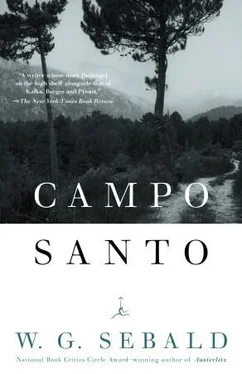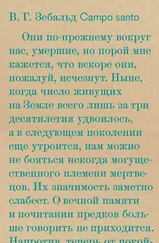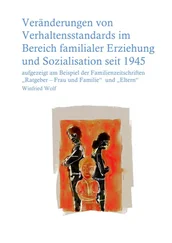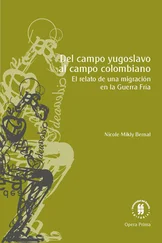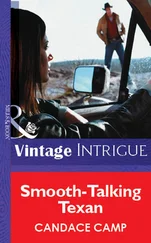I would suddenly see through one of the west windows a marvelous case of levitation. There, for an instant, the figure of my father in his wind-rippled white summer suit would be displayed, gloriously sprawling in midair, his limbs in a curiously casual attitude, his handsome, imperturbable features turned to the sky. Thrice, to the mighty heave-ho of his invisible tossers, he would fly up in this fashion, and the second time he would go higher than the first and then there he would be, on his last and loftiest flight, reclining, as if for good, against the cobalt blue of the summer noon, like one of those paradisiac personages who comfortably soar, with such a wealth of folds in their garments, on the vaulted ceiling of a church while below, one by one, the wax tapers in mortal hands light up to make a swarm of minute flames in the mist of incense, and the priest chants of eternal repose, and funeral lilies conceal the face of whoever lies there, among the swimming lights, in the open coffin.
Films, far more than books, have a way of disappearing not just from the market but from memory, never to be seen again. But one remembers some of them even decades later, and one of these rare exceptions, in my mind, is a ballad in black and white about two men neither of whom really knows where he is going. I saw it in a Munich cinema in May 1976, and afterward, moved as one easily is by such experiences, I walked home through the mild night to my one-room flat in the Olympiapark.
Bruno Winter, I think, was the name of the man in dungarees, the character in this story directed by Wim Wenders who is on his way through the infinitely tedious region behind the front line of the western world of the time. Viewers see him going from place to place, all of them disfigured by panels of man-made materials. He stops off at cinemas where almost no one goes anymore. Bruno’s life on the outskirts of a blinkered society was meant as a tribute to the springtime of the movies, when the public gazed entranced at quivering strips of celluloid; it was both an obituary for a vanished form of entertainment and a look back at the years after the last war, when many of the more remote parts of the German provinces had visits from such entrepreneurs traveling around with movies. We ourselves, in W. on the northern borders of the Alps, could go to a weekly film show in the hall of the local inn, the Engelwirt, and see films like The Secret Agent, The Man in Grey, Gilda , and Geronimo , with Lauren Bacall, Rita Hayworth, Stewart Granger, Chief Thundercloud, and other stars of the past on screen.
But that is not my subject here; I am concerned with the other man who races up in a Volkswagen at the beginning of Kings of the Road (Im Lauf der Zeit) , when Bruno is shaving in the open air, and drives it intentionally (so much is instantly obvious) into the river by which Bruno has parked overnight. Bruno is not a little surprised. For a long moment, the Beetle soars through the air as if it had learned to fly. To this day I remember the sight. As far as I recollect, Robert Lander, the man at the wheel who rises from the ground in this spectacular manner, like his near namesake who was carried away by an umbrella, is a pediatrician or a psychologist, and after this unusual opening, which Wenders presents in matter-of-fact style, they travel together through the more remote regions of their native land having various adventures, of which I remember most clearly a motorbike ride along an empty road, a very beautiful and almost weightless sequence. Bruno is riding the bike, if I remember correctly; and Robert sits in the sidecar wearing the kind of sunglasses one used to have to put on when being X-rayed. But to come to the real point: it is this Robert (the actor’s real name is Hanns Zischler), shown in the film relishing the speed of the ride and the ever changing patterns of light and shade, who has just published a book about Franz Kafka and what can be discovered or conjectured about his interest in the art of the cinema, still very new in his time. [10] Kafka geht ins Kino, Hanns Zischler, 1996; trans. by Susan Gillespie as Kafka Goes to the Movies, Chicago, 2003.
No author has had more written about him than Kafka. Thousands of books and articles about his character and work have accumulated within the comparatively short space of half a century. Anyone with even an approximate idea of the extent and parasitic nature of this proliferation of words may be forgiven for wondering whether any further additions to this already excessively long list of titles are needed. However, Kafka Goes to the Movies is in a category of its own. Unlike the general run of German critics, whose plodding studies regularly become a travesty of scholarship, and unlike the manufacturers of literary theory applying their astute minds to the difficulty of Kafka, Hanns Zischler confines himself to a restrained commentary which never tries to go beyond its particular subject. It is this restraint, keeping to the facts alone and refusing to indulge in attempts at elucidation, that we can now see, looking back, distinguishes the best of Kafka scholars. Today, if you pick up one of the many Kafka studies to have appeared since the 1950s, it is almost incredible to observe how much dust and mold have already accumulated on these secondary works, inspired as they are by the theories of existentialism, theology, psychoanalysis, structuralism, post-structuralism, reception aesthetics, or system criticism, and how unrewarding is the redundant verbiage on every page. Now and then, of course, you do find something different, for the conscientious and patient work of editors and factual commentators is in marked contrast to the chaff ground out in the mills of academia. To me at least — and I cannot claim to be entirely innocent of the fatal inclination to speculate about meanings — it seems increasingly that Malcolm Pasley, Klaus Wagenbach, Hartmut Binder, Walter Müller-Seidel, Christoph Stölzl, Anthony Northey, and Ritchie Robertson, all of whom have concentrated mainly on reconstructing a portrait of the author in his own time, have made a greater contribution to elucidating the texts than those exegetes who dig around in them unscrupulously and often shamelessly. And among the faithful advocates we may now count Zischler, who was working on a television film about Kafka in 1978 when he first came upon the notes on the cinema scattered through the diaries and books, some of them, as Zischler says, very curt and cryptic. He was then surprised to find how little scholars had to say about them. Zischler saw this odd lack of interest as the occasion for an investigation he has carried out in true detective spirit in the intervening years, in Berlin and Munich, Prague and Paris, Copenhagen and Verona, and he has now collected the results in a volume of surprising finds, unpretentiously written and exemplary in every way.
Overwhelmed with visual stimulation as we are today, it is difficult for us to understand the fascination that movie images exerted in Kafka’s time on audiences ready to abandon themselves to the illusion of an art which in many respects was still primitive, and was considered inferior by the arbiters of good taste. But Zischler, perhaps because he has been in front of the camera lens himself, knows all about the curiously mingled sense of identification and alienation felt when — in the extreme case, but it is a frequent one in the cinema — you can see yourself die. To Kafka, who was always yearning for his own dissolution, to perish almost imperceptibly in fugitive images running inexorably away like life itself must have been like the temptation of Saint Anthony in the desert. According to his own account and those of others, his eyes more than once filled with tears at the sight of such scenes in the movie theater. Which scenes we do not know, but he may well have felt like Peter Altenberg, who resembled him in many ways and defended the cinema, an art despised by the “psychological clowns of literature,” with the following reminiscence, quoted by Zischler: “My tender fifteen-year-old girlfriend and I, a fifty-two-year-old, cried hot tears over the nature sketch Under the Starry Sky , in which a poor French canal boat — hauler pulls his dead fiancée upstream, slowly and with difficulty, through blooming fields.” Kafka would surely have shed tears, too, over the French boat hauler and his lifeless fiancée, for the picture would have suggested so much to him: the torment of a never ending labor like some mythical punishment, mankind out of place in natural surroundings, the story of an unhappy engagement, untimely death. “Dearest,” he writes to Felice about a photograph from which she looked at him with a melancholy expression, “pictures are beautiful, we cannot do without pictures, but they torment us too.”
Читать дальше
